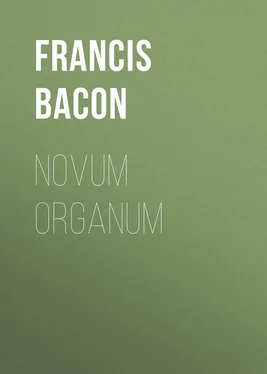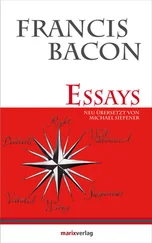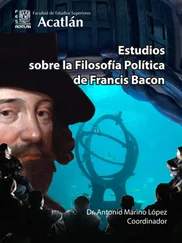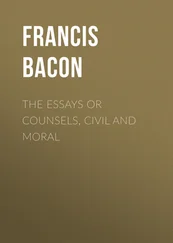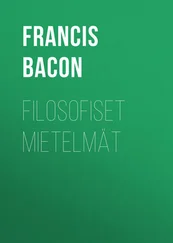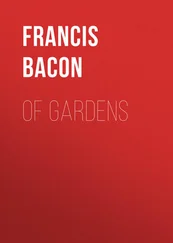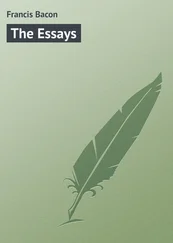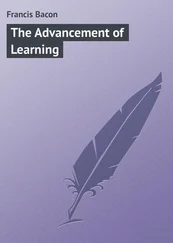Francis Bacon - Novum Organum
Здесь есть возможность читать онлайн «Francis Bacon - Novum Organum» — ознакомительный отрывок электронной книги совершенно бесплатно, а после прочтения отрывка купить полную версию. В некоторых случаях можно слушать аудио, скачать через торрент в формате fb2 и присутствует краткое содержание. Жанр: foreign_antique, foreign_prose, на английском языке. Описание произведения, (предисловие) а так же отзывы посетителей доступны на портале библиотеки ЛибКат.
- Название:Novum Organum
- Автор:
- Жанр:
- Год:неизвестен
- ISBN:нет данных
- Рейтинг книги:4 / 5. Голосов: 1
-
Избранное:Добавить в избранное
- Отзывы:
-
Ваша оценка:
- 80
- 1
- 2
- 3
- 4
- 5
Novum Organum: краткое содержание, описание и аннотация
Предлагаем к чтению аннотацию, описание, краткое содержание или предисловие (зависит от того, что написал сам автор книги «Novum Organum»). Если вы не нашли необходимую информацию о книге — напишите в комментариях, мы постараемся отыскать её.
Novum Organum — читать онлайн ознакомительный отрывок
Ниже представлен текст книги, разбитый по страницам. Система сохранения места последней прочитанной страницы, позволяет с удобством читать онлайн бесплатно книгу «Novum Organum», без необходимости каждый раз заново искать на чём Вы остановились. Поставьте закладку, и сможете в любой момент перейти на страницу, на которой закончили чтение.
Интервал:
Закладка:
LXXIX. A second cause offers itself, which is certainly of the greatest importance; namely, that in those very ages in which men’s wit and literature flourished considerably, or even moderately, but a small part of their industry was bestowed on natural philosophy, the great mother of the sciences. For every art and science torn from this root may, perhaps, be polished, and put into a serviceable shape, but can admit of little growth. It is well known, that after the Christian religion had been acknowledged, and arrived at maturity, by far the best wits were busied upon theology, where the highest rewards offered themselves, and every species of assistance was abundantly supplied, and the study of which was the principal occupation of the western European nations during the third epoch; the rather because literature flourished about the very time when controversies concerning religion first began to bud forth. 2. In the preceding ages, during the second epoch (that of the Romans), philosophical meditation and labor was chiefly occupied and wasted in moral philosophy (the theology of the heathens): besides, the greatest minds in these times applied themselves to civil affairs, on account of the magnitude of the Roman empire, which required the labor of many. 3. The age during which natural philosophy appeared principally to flourish among the Greeks, was but a short period, since in the more ancient times the seven sages (with the exception of Thales), applied themselves to moral philosophy and politics, and at a later period, after Socrates had brought down philosophy from heaven to earth, moral philosophy became more prevalent, and diverted men’s attention from natural. Nay, the very period during which physical inquiries flourished, was corrupted and rendered useless by contradictions, and the ambition of new opinions. Since, therefore, during these three epochs, natural philosophy has been materially neglected or impeded, it is not at all surprising that men should have made but little progress in it, seeing they were attending to an entirely different matter.
LXXX. Add to this that natural philosophy, especially of late, has seldom gained exclusive possession of an individual free from all other pursuits, even among those who have applied themselves to it, unless there may be an example or two of some monk studying in his cell, or some nobleman in his villa. 45 45 The allusion is evidently to Roger Bacon and Réné Descartes. — Ed.
She has rather been made a passage and bridge to other pursuits.
Thus has this great mother of the sciences been degraded most unworthily to the situation of a handmaid, and made to wait upon medicine or mathematical operations, and to wash the immature minds of youth, and imbue them with a first dye, that they may afterward be more ready to receive and retain another. In the meantime, let no one expect any great progress in the sciences (especially their operative part), unless natural philosophy be applied to particular sciences, and particular sciences again referred back to natural philosophy. For want of this, astronomy, optics, music, many mechanical arts, medicine itself, and (what perhaps is more wonderful), moral and political philosophy, and the logical sciences have no depth, but only glide over the surface and variety of things; because these sciences, when they have been once partitioned out and established, are no longer nourished by natural philosophy, which would have imparted fresh vigor and growth to them from the sources and genuine contemplation of motion, rays, sounds, texture, and conformation of bodies, and the affections and capacity of the understanding. But we can little wonder that the sciences grow not when separated from their roots.
LXXXI. There is another powerful and great cause of the little advancement of the sciences, which is this; it is impossible to advance properly in the course when the goal is not properly fixed. But the real and legitimate goal of the sciences is the endowment of human life with new inventions and riches. The great crowd of teachers know nothing of this, but consist of dictatorial hirelings; unless it so happen that some artisan of an acute genius, and ambitious of fame, gives up his time to a new discovery, which is generally attended with a loss of property. The majority, so far from proposing to themselves the augmentation of the mass of arts and sciences, make no other use of an inquiry into the mass already before them, than is afforded by the conversion of it to some use in their lectures, or to gain, or to the acquirement of a name, and the like. But if one out of the multitude be found, who courts science from real zeal, and on his own account, even he will be seen rather to follow contemplation, and the variety of theories, than a severe and strict investigation of truth. Again, if there even be an unusually strict investigator of truth, yet will he propose to himself, as the test of truth, the satisfaction of his mind and understanding, as to the causes of things long since known, and not such a test as to lead to some new earnest of effects, and a new light in axioms. If, therefore, no one have laid down the real end of science, we cannot wonder that there should be error in points subordinate to that end.
LXXXII. But, in like manner, as the end and goal of science is ill defined, so, even were the case otherwise, men have chosen an erroneous and impassable direction. For it is sufficient to astonish any reflecting mind, that nobody should have cared or wished to open and complete a way for the understanding, setting off from the senses, and regular, well-conducted experiment; but that everything has been abandoned either to the mists of tradition, the whirl and confusion of argument, or the waves and mazes of chance, and desultory, ill-combined experiment. Now, let any one but consider soberly and diligently the nature of the path men have been accustomed to pursue in the investigation and discovery of any matter, and he will doubtless first observe the rude and inartificial manner of discovery most familiar to mankind: which is no other than this. When any one prepares himself for discovery, he first inquires and obtains a full account of all that has been said on the subject by others, then adds his own reflections, and stirs up and, as it were, invokes his own spirit, after much mental labor, to disclose its oracles. All which is a method without foundation, and merely turns on opinion.
Another, perhaps, calls in logic to assist him in discovery, which bears only a nominal relation to his purpose. For the discoveries of logic are not discoveries of principles and leading axioms, but only of what appears to accord with them. 46 46 From the abuse of the scholastics, who mistook the à priori method, the deductive syllogism, for the entire province of logic. — Ed.
And when men become curious and importunate, and give trouble, interrupting her about her proofs, and the discovery of principles or first axioms, she puts them off with her usual answer, referring them to faith, and ordering them to swear allegiance to each art in its own department.
There remains but mere experience, which, when it offers itself, is called chance; when it is sought after, experiment. 47 47 See Aphorism xcv .
But this kind of experience is nothing but a loose fagot; and mere groping in the dark, as men at night try all means of discovering the right road, while it would be better and more prudent either to wait for day, or procure a light, and then proceed. On the contrary, the real order of experience begins by setting up a light, and then shows the road by it, commencing with a regulated and digested, not a misplaced and vague course of experiment, and thence deducing axioms, and from those axioms new experiments: for not even the Divine Word proceeded to operate on the general mass of things without due order.
Интервал:
Закладка:
Похожие книги на «Novum Organum»
Представляем Вашему вниманию похожие книги на «Novum Organum» списком для выбора. Мы отобрали схожую по названию и смыслу литературу в надежде предоставить читателям больше вариантов отыскать новые, интересные, ещё непрочитанные произведения.
Обсуждение, отзывы о книге «Novum Organum» и просто собственные мнения читателей. Оставьте ваши комментарии, напишите, что Вы думаете о произведении, его смысле или главных героях. Укажите что конкретно понравилось, а что нет, и почему Вы так считаете.
